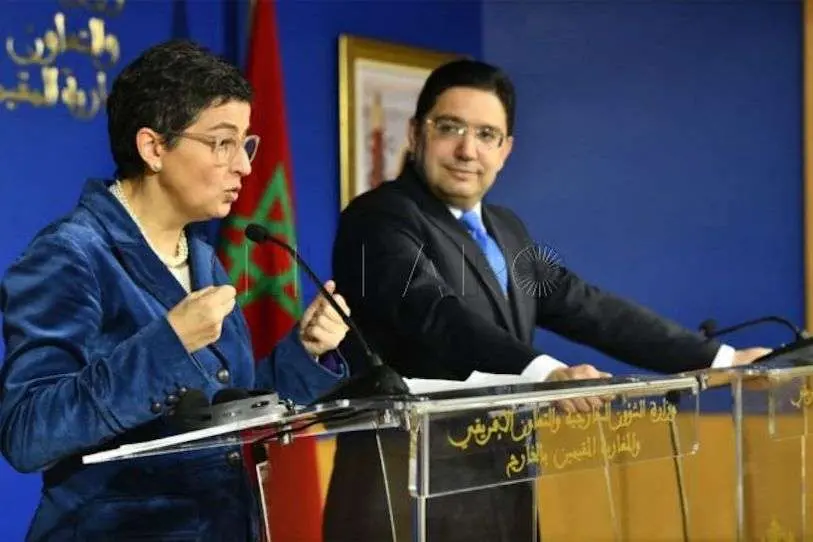Spain pressures the Polisario to negotiate the autonomic solution

The Executive of Pedro Sanchez, despite the burden on his foreign policy of his governmental alliance with Podemos, is using his means and influence to pressure the Polisario Front movement to accept Morocco's proposal for a solution based on autonomy for the Sahara under international supervision.
Several facts corroborate this:
- The firmness of the Minister of Foreign Affairs Arancha Gonzalez Laya in refusing to include the banner of SADR (Saharawi Republic proclaimed on Algerian territory and not recognised by the UN or the European Union) in the display of African flags exhibited in the Spanish Ministry commemorating Africa Day on 25 May last.
- The non-recognition of the "diplomatic passports" which the numerous representatives of the Polisario in the Spanish State and in the Autonomous Communities, intend to use as travel documents
- The call to order to Vice President Pablo Iglesias by one of his handpicked followers as Secretary of State for Social Rights, with a SADR "minister" in an official government office, forcing even the leader of Podemos to admit, much to his regret, that "Spanish foreign policy is a matter of state".
- And the recent decision of the Supreme Court denying the automatic right to Spanish nationality to all those born in Western Sahara before 14 November 1975, the date on which Spain transferred the administration of the territory to Morocco and Mauritania in a document signed in Madrid by the President of the Spanish government Carlos Arias Navarro, the Moroccan Prime Minister Ahmed Osman and the Mauritanian Minister of Foreign Affairs Hamdi Uld Mouknass, and officially deposited with the United Nations.
During all these years, thousands of Saharawi citizens, many of them living in Spain, obtained Spanish nationality on the basis of documents proving that they were born in the Territory of Western Sahara before 1975, of Saharawi parents, many of them having served as civil servants, policemen or members of the Spanish Third of Sahara. All Spanish governments, whether PSOE or PP, accepted as good the premises for obtaining such nationality. But it was under the government of Pedro Sanchez that this legal abnormality was put to an end by a decision of the Supreme Court.
Beyond the controversy that this refusal of the Supreme Court to grant Spanish nationality automatically can arouse, the fact itself is interpreted as another pressure on the Saharawi independence movement and its sponsor, the Algerian state, to negotiate seriously on the basis of the offer made by Morocco of a solution based on the project of advanced regionalization of the territory, in other words, a political autonomy of self-government.
The decision of the Sanchez government concerning the question of the Sahara is fundamental, although it cannot deny the existence of the problem posed by the thousands of Saharawi refugees in the Tindouf camps. For the Spanish executive there is not a political problem in the Sahara, but a human problem of refugees.
Until now, the Polisario Front has moved around the Spanish state with complete freedom, using both movements of Spaniards in solidarity with its cause and Saharawis with Spanish nationality. The attitude of the Sanchez government is a clear message: it is time to return to the country and find a solution in autonomous self-government within the Moroccan State. Pedro Sanchez also knows that for his government partner Pablo Iglesias, the Sahara is a minor issue, which can perfectly well be sacrificed on the altar of personal and party interests.

